Techno is a bustling scene in Australia at the moment, especially within the city of Melbourne. It may seem that it’s my biased opinion considering I live in the city and am apart of the scene myself, but I like to think the others can see this too.
Melbourne’s techno scene is like an organism. Right now, its small (relative to other scenes around the world i.e Berlin, London, Detroit etc), buts it’s made up of groups who collectively pool together for the greater good of the organism. They all breed life into a scene who in recent times is flourishing and evolving at a good pace. Machine is one such group who has been at the heart of the scene since 2009.
Machine’s website state this, which I think is a perfect testament to the above paragraph: “It’s simple. A straight up statement of what we stand for, and significantly what we don’t, and won’t accept. But that is only half of the story. It’s the Riot Act. But we also want to be proactive in fostering the right environment. And to do that we need active involvement from our nearest and dearest'”.
Machine are giving it up to the local techno scene with their next club night at My Aeon. Click here for the event detail as its primed to be one hell of a night. Ahead of the evening, I shot Simon Slieker of Machine some questions so we can peer deeper into the mind of one individual behind the night.
FS: Machine has been active since 2009. What was Melbourne’s techno scene like back then compared to what it is now? Have there been in major changes that you’ve noticed?
SS: Let’s begin by saying techno is an endurance sport. Or like a really good set, in that it rises and falls and gives you time to breathe. It’s fair to say in 2009 Melbourne’s techno scene was in a breathing phase. Actually it was gasping and trying not to asphyxiate. Since then there’s been a gradual but steady revitalisation of techno. More people have become interested, old people have re-emerged and rebooted their interest and we’ve seen a diversification of the art-form expressed through a range of stylistic elements, in both sound and visual aesthetic. Techno is shedding the image of bland, purposeless, rigid and masculine and becoming more of what it always had the potential to be: a vivid and valuable artistic movement.
FS: Andrew Till started machine in 2009, but you were soon brought into the operation. How did you form your relation with Andrew and what do you think he represents? To follow on, what was your initial concept for Machine and has it changed since?
At Machine’s inception Andrew asked me if I’d like to come on board as a resident. So I’ve been involved since the beginning. As we worked along side one another our working relationship, and friendship developed along with the night. Whilst in some ways it seems a natural progression, it’s a true indication of the inclusivity and generosity of Andrew that he invited me to become a partner in the endeavour. And it makes sense; not only is the load shared, we each bring our own personality and qualities to the operation which makes it a richer experience.
As for what Andrew represents. Why, Machine of course. But more broadly Andrew was doing this, quite literally at the inception of the electronic music scene in Melbourne. He has continued to do it, centrally and from multiple angles (dj, producer, promoter, label manager, A&R person and artist manager) for 26 years. He has managed to maintain his artistic integrity, dignity, humilty and humour in an industry known for its inconsistency, egomania, fads, drop outs and sell outs. Andrew represents being true to what you believe in.
From the outset Machine was to be a vehicle to present techno as a culturally relevant art-form. Machine Label was commenced immediately after the club as a way of curating and celebrating the artists around us. The art and design, the sound and the social dimensions of both contribute to the culture as we see it. This idea has always run in the background and is foregrounded at various moments in different things we do.
FS: How was it that you and Andrew initially got into techno music?
AT: It was a natural progression for me after discovering dance music in the early 80’s from the beginnings of new wave and synth pop , to the rise of the House, garage, hip hop, balearic, new beat, acid house to Detroit techno played at Melbourne club nights such a Hardware Club, Sub Terrain, Hardtimes, Pleasure @ ZuZus, Checkpoint Charlie, Razor and Maze right through to the birth of a new culture with its innovation and creative aspect of the music, art, fashion, visual arts, digital animation, DYI attitude, all together inclusiveness and club nights that sprouted up all over the city on any given night that got me.
SS: I first encountered Techno in 1991 through Kate Bathgate’s iconic show on 3RRR Beat In The Street (later Transmission). That’s where I first began to become aware of the house music, and importantly the parties and culture that surrounded it. Before that I always had a leaning to unusual music with an electronic edge: hip hop as a kid, eclectic records from my mums collection, then I discovered sample based electronica in Pop Will Eat Itself and Zieg Zieg Sputnik. One day I heard Papua New Guinea by FSOL and that opened me up to the acid house revolution.
FS: On the Machine label website, you state that the collective has lived through the rise and fall of techno in Melbourne. Could you explain this rise and fall to those who are new to the techno scene?
SS: As mentioned earlier it’s cyclic. Techno rises and falls like the tides. It rose to exulted heights in 1998-99 where crowds to events in Melbourne were unprecedented. But of course this brought about cashing in from various quarters and quality suffered. Also where the party scene had been an explosion of colour and a social movement, this vibe began to dissipate, pretty much with the advent of the GST, changes to university HECS and a loss of habitat in warehouse spaces. Warehouse party culture turned increasingly turned to nightclubs which had consequences like less focus on art, projections etc… and different financial imperatives coming from the venue side, pressures upon numbers and a focus on alcohol sales. Each of these things has taken time to adjust to and it really feels like Melbourne has ridden through it. There’s now a very clear sense that the whole techno fraternity is moving forward together.
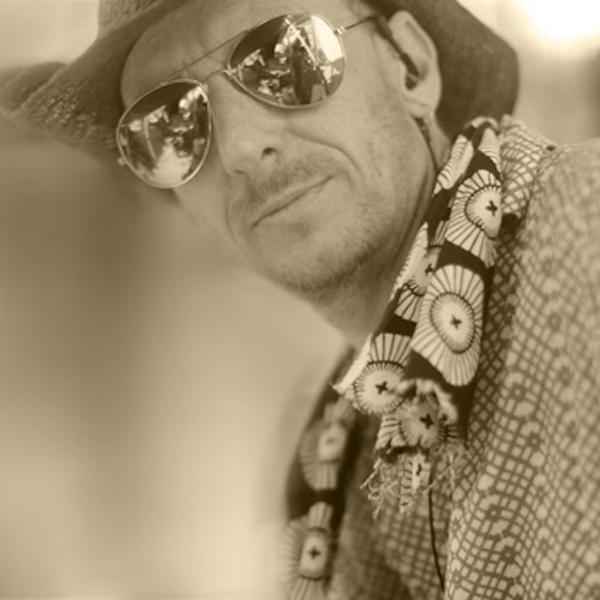
Andrew Till
FS: You’re celebrating the best of what Melbourne has to offer with your Machine label night on the 25th of Feb. What’s your view on Melbourne as a techno city? Do you feel like artist are now representing techno music in the city on a global stage?
Melbourne is still the premiere city for techno in Australia. We were known around the world for the intensity of our scene back in the 90’s, with Luke Slater once famously declaring Melbourne as “techno city”. Kudos to us. On the production front we feel like there is so much quality music being made here now, that it’s only a matter of time before we have our own international renaissance, maybe a little like Itally at the moment, Berlin, London etc…As far as Machine Label goes on the local front we’re pretty excited about Lateral and his output. Matthew Drape is a quality producer, dj and human being and that’s why we invited him to come on board Machine Label as a partner; so we’re now a team of three there. Enclave and Juan Tellez are doing great work and look out for the new release from Composite Cone… seriously. On our international roster the new one from The Black Moy is epic.
FS: Did you find it hard choosing which artists to select for your celebration or was it obvious who you would pick to represent the best of Melbourne techno?
SS: It may sound a little trite, but most of our nights feel to us like a celebration of some aspect of the talent that surrounds us. The thrust with this Machine was having Adrian and Pat and Dean on board felt like a nod to chief archetects and instigators from other crews. It’s a celebration of a unity that we have in Melbourne right now that ought to be heralded, celebrated, shouted about. It certainly hasn’t always been like this, we’ve lived through years of bickering between crews and promoters and one upmanship in the dj ranks. It’s not like that in techno here now. We actually all talk, we observe and honour each others dates, we pay respect to each other’s events, we attend one another’s events, and I feel we each in our own way understand that the better each of us does the better all of us are. That’s unity isn’t it?
FS: On the event, one sentence hits home for me. “It is a declaration of unity and a rallying call for all that is to come”. Could you expand on this for us?
SS: Yes, well to follow on from the previous answer, if we, Melbourne as a techno arts community really drive tenets such as tolerance, openness, willingness to communicate and listen, to collaborate and care then we’re not only laying the foundations for enormous creative potential, we’re doing something to inhabit the kind of world we want to live in.
FS: What was it initially about the My Aeon venue that made you gravitate towards it to hold your Machine events? Now that the venue has undergone some renovations, what do you think the venue represents now and what do you think of its future?
SS: My Aeon has always been a unique venue. Independently owned by someone who actually cares about music. Before it was My Aeon the venue, Ace Morning was already steeped in party folk lore, as Melbourne’s playground and party pit. We loved the venue then as it offered a diverse experience with differentiated spaces: lounge, dancefloor and garden. It was kooky and cool and relaxed.
This new incarnation of My Aeon offers us something else altogether: an absolute world class entertainment space where no expense has been spared on all of the aspects that are usually ignored by club owners: the sound, the sound insulation, baffling and containment. The upstairs space as a second room is incredible because it’s not a secondary space as much as a second primary space. Both rooms have complete dj booth arrays, installed turntables and CDJ’s, bespoke desks with plenty of room for plug in gear, controllers, computers etc… There’s a permanent lighting installation. Plus we generally bring in either a laser array and operator or a live digital animation artist. And the sound is pretty incredible. It’s only going to get better as well. There were some teething problems when it first re-opened like a lack of soft furnishings and seating, but it’s all coming together. Also we went hard on our Inclusivity and Freedom From Harassment policy (https://machinelabel.co/inclusivity-and-freedom-from-harassment-stance) which had a huge response and really got the community talking about what this means and what we, as revellers and party goers are entitled to; with a particular focus on marginalised groups and women, who tend to cop it in the club arena. No more. We won’t stand for it and the message is getting through.

Simon Slieker
FS: How do prepare for a set? Do you go into a set feeling the general vibe of the night or do you have a general idea of what kind of set you want to play? Have you got anything in mind for your set at machine?
It’s a bit of both for me. There’s a lot of reference work, sorting and sourcing of music that goes on behind the scenes before I play a set. This process will set the tone but not the specifics. That for me has always been part of the magic of the gig: it’s a dynamic process of feeling the environment, the room, the people, the mood. Without a doubt my best work is done when I get out of my own way. Ego and self concern recede and a sense of flow and engagement take over. But this is no easy thing. It took years of dedicated commitment to get to a point where I could allow intuition to do its thing, and even now it’s a constant battle to get out of my head and into the zone.
It’s also a more diverse and complex task now to prepare. I have vinyl to source, buy and have shipped. Older vinyl to sort through. I mean going back 24 years. And then there’s trying to stay abreast of digital releases, ensuring I have the breadth of music that I need. Then there’s the digital compiling on USB sticks which go into the side pockets of my record bags. It’s pretty intense managing an analogue and a digital music collection and what they each entail.
Machine label had a strong presence at the 20th Rainbow Serpent event in January. What was your experience like at the festival representing your brand and your DJ set?
Incredible. It’s always an honour to play at Rainbow. It’s such a premiere event and definitely all the local artists who play there do their utmost to play at their best. That’s why it’s exciting to watch people who you may see regularly at home play at Rainbow: there’s this anticipation of “Oooooh how are they going to go? What are they going to do?”. So for the 3 people behind Machine to all play created an intense thrill, for us individually and as a collective. I had a ball on the Friday night dancing and cavorting around to Andrew Till and Matthew Drape (Lateral). And I was incredibly touched at how many friends braved the 5am Monday morning bracket to support me over on the Market Stage. Honestly, very humbling. We’re very proud of where we’re at with Machine and Machine Label. And further to that, we’re feeling the same way about the wider world of techno in Melbourne. And it’s this that we’re celebrating on the 25th.
Thanks to Andrew and Simon for the insight. Be sure to check out their event page for Machine celebration of techno in Melbourne.
By Fergus Sweetland.
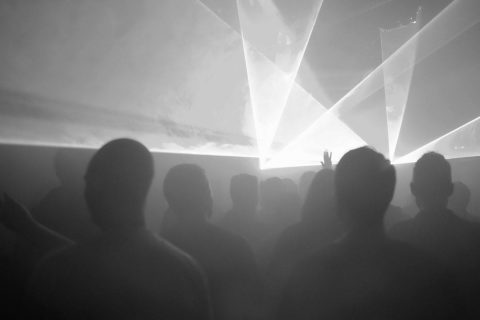
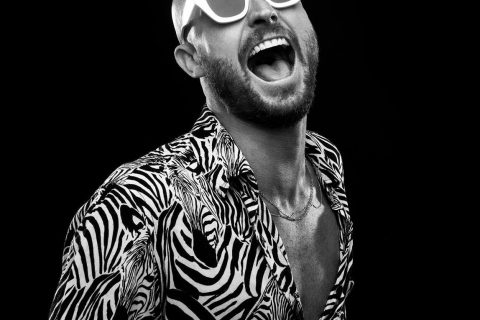
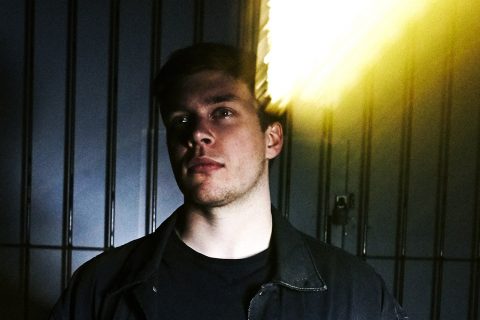
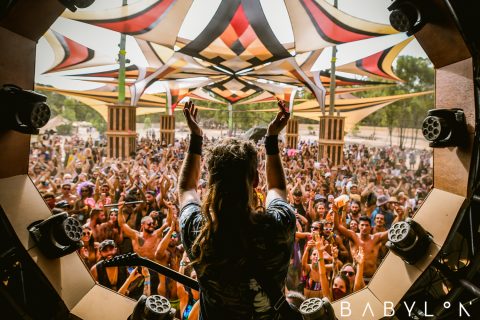
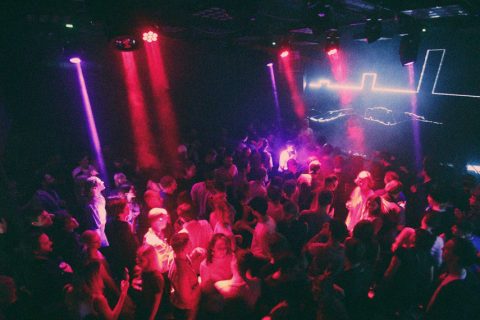
Comments